
The result of next month’s federal election might be anyone’s guess, but one thing is clear: Australians are just about fed up with the major parties.
I’m not just putting my finger to the wind and saying that based on the vibes in the air. The most recent Newspoll puts Labor ahead on a two-party-preferred basis, but has the primary vote of both Labor and the Coalition hanging stubbornly in the mid-30 per cent range. A lot of people are still undecided, and leadership polling shows that there are plenty of voters who don’t like either ScoMo or Albo. As the climate independents — or “teals” — challenge blue ribbon Liberal seats, and the rogues gallery of One Nation and the United Australia Party try to nab voters in the regions, it makes for one of the most chaotic elections in recent memory.
According to the AEC’s register of political parties, there are 34 legal, registered non-Labor and Coalition parties. Of those, 32 are putting up candidates somewhere for the federal election. Thanks to our preferential voting system, you can vote for any of them if they align with your values, without fear that you are throwing your vote away.
Many moons ago, I was a deputy editor at Pedestrian. I have returned from my exile in the desert to answer a simple question: what’s the go with all the minor parties? Who are they, and do they deserve your vote? Are they kooks, cranks, weirdos? Normal guys? All phenomenal questions that I am perfectly equipped to answer for you.
Please. Take my hand. Join me on this journey into the dark heart of Australian democracy, and find out whether you should roll the dice.
Animal Justice Party
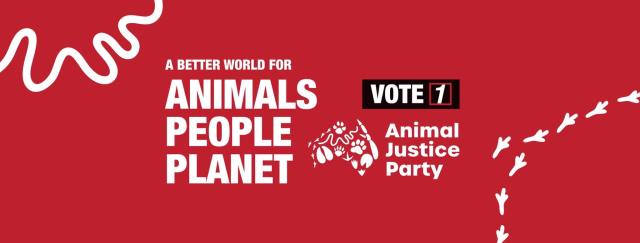
The Animal Justice Party, as you might expect, loves animals, and seeks justice for them.
Its running Senate and House candidates on a platform of protecting animals and their habitats, meaning ending factory farming, live export, animal testing, etc. So if you like that stuff – like, if you’re a real factory farming head, or a fiend for testing cosmetics on animals – they aren’t for you.
On issues not related to our furry friends, they are basically The Greens lite. Climate change bad, clean water good.
LIKES: Wombats, platypuses, cows, pigs, cats, etc. I could go on.
DISLIKES: Dog poisoners.
Australian Christians
Back in 2017, Liberal Party rebel and all-around weird guy Cory Bernardi invited conservative Christian party Australian Christians to merge with his Australian Conservatives. They did, except for the party’s Western Australia branch, which chose to stay independent.
The Australian Conservatives went on to eat shit and die after the 2019 election. Now who’s laughing? Well, me. But also, the still-existing Australian Christians, who are running a handful of WA candidates on a platform of having a big cry about marriage equality being legal.
LIKES: Sexual morality, long socks.
DISLIKES: The separation of church and state.
Australian Citizens Party
The Australian Citizens Party is a weird one. It began its life in 1988 as a right-wing party named the Citizens Electoral Council, which was quickly taken over by followers of the international LaRouche movement – a long-running political network-slash-cult that tends to attract some of the strangest units you can imagine.
Now rebranded, it argues for regulating the banks, radically increasing Australia’s population, standing against “dangerous drugs, mass-produced Hollywood movies and banal popular music” and proving that climate change is an evil lie. A real grab bag of ideas there. You can’t say they’re not swinging for the fences.
The party has been dogged by allegations of extreme anti-Semitism for many years, so feel free to factor that one in to your calculation in the polling booth.
LIKES: Sending friends and family 6,000 word essays about Australian food security via WhatsApp.
DISLIKES: Being normal on Facebook.
Australian Democrats
Oldheads will remember the Australian Democrats. They were the Greens before the Greens existed, promising to “keep the bastards honest” and managing to score nine Senate seats at their peak in 1999.
The Greens eventually took over as Australia’s third party, and the Democrats collapsed at the 2004 election. But they’re back, running Senate candidates on a centrist platform of good governance, anti-corruption and climate action.
There are plenty of minor parties running on those ideas. But if you’re also seeking to reignite the swinging premillennial vibe of the late 1990s, the Democrats could be for you.
LIKES: Remembering the good old days when they were in any way relevant.
DISLIKES: The inexorable march of time.
Australian Federation Party
The Australian Federation Party says it wants to “counter the incompetence and corruption of Labor/Greens and Liberal/Nationals”. They’re a regionally-focused party that seems most committed to making Australia exactly like it was prior to 1975.
In what will become a recurring theme in this article, they’re still very upset about Covid. “It was known since early 2020 that the Covid pandemic is not very severe,” reads the website. Alright.
LIKES: That clean, crisp country air.
DISLIKES: Stuff changing. Quit that.
Australian Greens
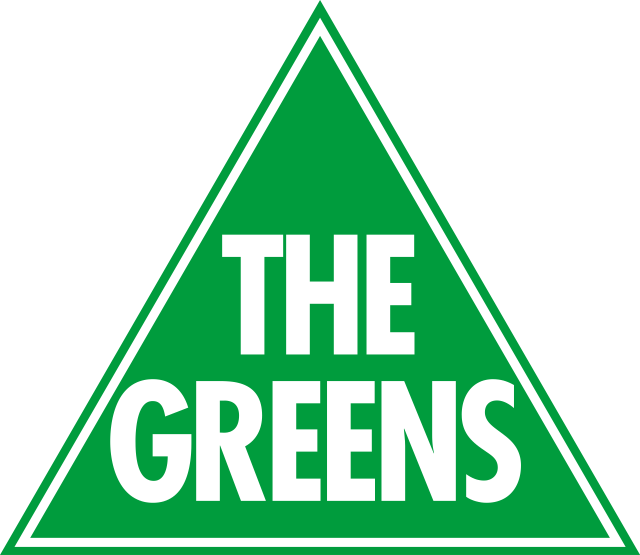
It feels rude to call the Greens a minor party, given they’re reliably polling at over 10 per cent of the national primary vote. But I will, mostly to make myself feel like a big man.
I think you know what they’re about. They like the natural environment, they like economic justice, they don’t like climate change. They’ve successfully carved a decent chunk out of Labor’s inner city vote over the past couple of decades, helping net them nine Senate seats. They’ve got their eye on a few House of Representatives seats next month.
If you’re voting Green you probably already know it. Why are you here?
LIKES: Renewables, economic redistribution, riding bicycles, getting into arguments with Labor voters online.
DISLIKES: Billionaires, Coral reef bleaching, nukes, getting into arguments with Labor voters online.
The Australian Values Party
This party is the electoral vehicle of high-profile former soldier and current himbo Heston Russell. It’s running a handful of Senate candidates around the country, along with a few in specific lower house seats like Kooyong and Blair. The party platform is a hodgepodge of generic, very lightly explained policies about making Australia great, self-sufficient and patriotic again, if you’re into that sort of thing.
You might know Heston best for setting up an OnlyFans account while fundraising for a veterans charity and, according to the ABC, “charging $US60 on Anzac Day last year for a picture of himself holding his erect penis.”
Or when he, according to the SMH’s gossip column, somehow turned on the garage car stacker while at a friend’s ritzy Woollahra dinner party, crushing a $150,000 BMW against the ceiling, where it “remained for a week until workers could prise it down”. Here’s a pic:

So. If you think the country needs that energy: vote 1 Australian Values Party.
LIKES: Australia, freedom, ineptly operating a car stacker.
DISLIKES: How kids these days don’t respect the diggers.
Australian Progressives
Another one of the many parties trying to pick up a bit of the “fed up progressive” vote, the Australian Progressives say they are aspiring “to be more than just a political party”.
Ending climate change, ending poverty, ending corruption. You know the script. They’re only running three candidates.
LIKES: A particularly violent shade of purple.
DISLIKES: Good web design.
Centre Alliance
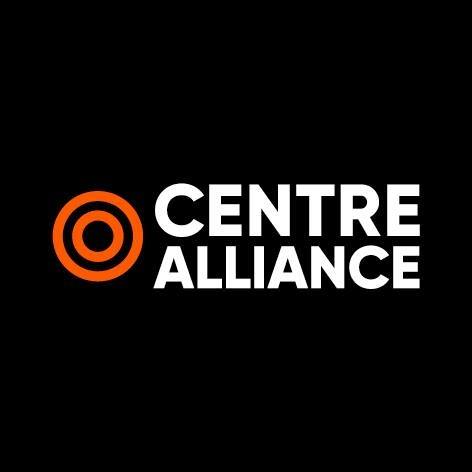
Formed from the ashes of Nick Xenophon’s political efforts, the Centre Alliance are a South Australian party.
They have one Senator and one MP already, and have a bunch of vaguely populist and socially liberal policies. Their Senator is named Stirling Griff, like a TV cowboy whose hard exterior masks a heart of gold and a deep sense of justice. I’m not saying that should factor into your vote, but I’m not saying it shouldn’t either.
LIKES: The great state of South Australia.
DISLIKES: Pokies.
Climate Independents
Okay, this is not strictly a party and is not registered as such with the AEC. But the “teal” independents, who are mostly challenging moderate Liberals and are largely financed by Climate 200, are so party-like it’s worth including them here.
They’re also the biggest wildcard of the election, and their pitch of political integrity, climate action and gender equality is putting up a genuine challenge in once solidly Liberal seats like Kooyong, Wentworth, Goldstein and Mackellar – following the example of Zali Steggall, who turfed Tony Abbott in 2019.
Basically, if one or more of them get up, it’ll change the way minor candidate campaigns are run in this country.
LIKES: Pissing off Liberal moderates, who are already possibly the most cucked people in Australia.
DISLIKES: Not appearing on the ABC’s Vote Compass.
David Pocock
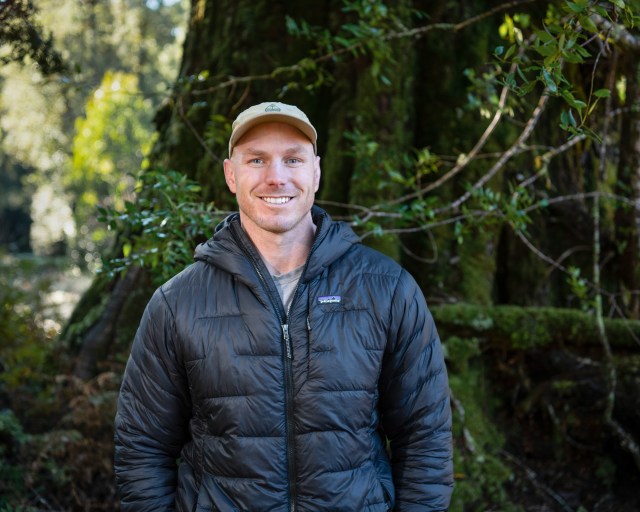
It would be very funny if a party registered as “David Pocock” had absolutely nothing to do with beloved rugby hunk David Pocock. But it does.
David is running for Senate in the ACT as an independent, on a progressive platform of environmental conservation and social justice.
He’s obviously worried his competition enough that someone is running a letterboxing campaign telling Canberra voters not to vote for him. Not who to vote for instead, mind you. Just not to vote for him.
LIKES: Being David Pocock, scoring two tries in Australia’s opening game of the 2015 Rugby World Cup against Fiji, environmental justice.
DISLIKES: ACT Liberal Senator Zed Seselja.
Derryn Hinch’s Justice Party
Radio broadcaster Derryn Hinch won a Senate seat in 2016, promising to get tough on crime and use parliamentary privilege to name and shame paedophiles.
He lost that seat in 2019. Now he wants it back, and is aiming for a handful of others in Victoria. If he does win, he might have less time to tweet about Wordle every single goddamn day. Vote wisely.
Wordlers. That’s better. Got it in 3, admittedly, with two green starters .
— Derryn Hinch (@HumanHeadline) April 23, 2022
LIKES: Jail.
DISLIKES: Paedophiles.
Drew Pavlou Democratic Alliance
Drew Pavlou is a former student activist who went to war with the University of Queensland over its ties to China.
He’s launched a campaign for next month’s federal election which is mostly about human rights and the Chinese Communist Party. There’s also a handful of other policies in there around anti-corruption, tackling poverty and nation-building infrastructure, but it’s mostly about China.
LIKES: High-speed rail.
DISLIKES: China.
FUSION: Science, Pirate, Secular, Climate Emergency
It turns out that having a billion different tiny progressive parties makes it hard to differentiate yourself. That’s partly why the Science Party, Pirate Party, Secular Party, Vote Planet, and Climate Change Justice Party have all merged for this year’s election under the name FUSION.
As you might have guessed from the constituent parties of this new alliance, this is basically for progressive nerds. I don’t mean this in a rude way. But if you look at their candidate list, it’s pretty clearly a bunch of friendly poindexters. Good luck to them, I say.
LIKES: Secular humanism, science, inclusion, education, probably board games and poly stuff.
DISLIKES: Being stuffed in a locker, swirlies, wet willies.
Federal ICAC Now
It seems like basically every single party that isn’t in the Coalition – weird – is pretty strongly committed to a federal ICAC. But if it’s literally your only issue, I suppose you could vote for Federal ICAC Now.
They also have a handful of other anti-corruption policies, like donations reform and banning ministers from being hired by companies in the sectors they used to oversee.
LIKES: A federal ICAC.
DISLIKES: The fact there’s currently no federal ICAC. What’s the go there?
Indigenous-Aboriginal Party of Australia
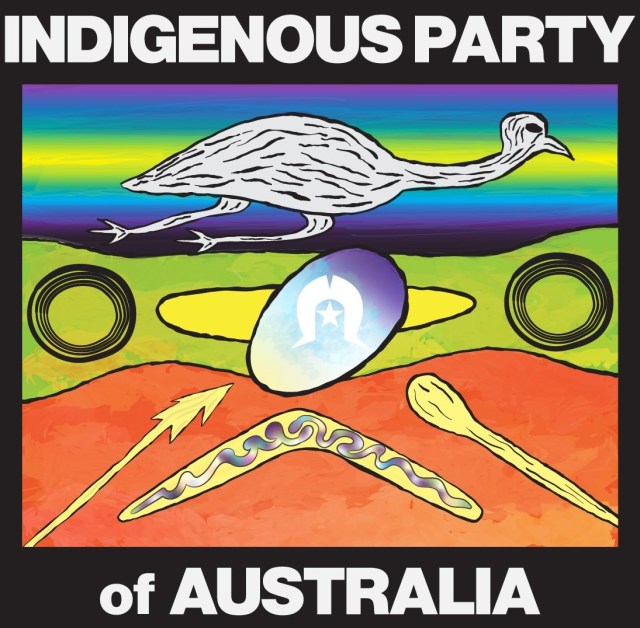
Describing itself as “the first political party in Australia that really cares about Indigenous people”, the Indigenous-Aboriginal Party of Australia is a project of Uncle Owen Whyman, a Paakindji man from Wilcannia in NSW.
It backs the Uluru Statement from the Heart and wants to reduce Indigenous incarceration and youth suicide rates, and emphasise constitutional recognition and Treaty. They’re running NSW and Queensland Senate candidates, as well as a small handful of lower house seats in regional NSW.
LIKES: Indigenous rights.
DISLIKES: Colonialism.
Informed Medical Options Party
You might ascertain from the name that the Informed Medical Options Party is an antivaxer party. Well, you’re right. But unlike the Johnny-come-latelies that only became antivax when it was cool during Covid, these guys have been beating the drum for years.
They’re running quite a few candidates, actually. Unsurprisingly, they don’t have many policies that don’t relate to being antivax in some way. Oh, there’s some anti-5G stuff in there as a bonus.
LIKES: Being barefoot in public.
DISLIKES: Needles. Yuck!
Jacqui Lambie Network

Jacqui Lambie was originally elected as a member of the Palmer United Party in 2016 as an anti-Islam nationalist.
She’s renounced many of her earlier views, and now the Jacqui Lambie Network pitches itself as a big tent populist party for battlers, welfare recipients and veterans. She’s not up for election this year, but she’s running a handful of other candidates in Tasmania.
LIKES: The iron will of the people, well-hung blokes.
DISLIKES: Scott Morrison, Scott Morrison’s head, that annoying little smirk Scott Morrison does.
Katter’s Australia Party
We all know Bob Katter. He’ll almost certainly win his seat, which he has held since 1993.
His heady mix of social conservatism, pro-union politics, nationalism and general batshittery tends not to fly beyond his electorate, but he’s running a few other candidates in North Queensland. His exciting new policy for 2022: give every child in Australia a gun.
LIKES: Letting a thousand blossoms bloom.
DISLIKES: People being torn to pieces by crocodiles in North Queensland.
Kim for Canberra
The goal of this party is not to elect just any Kim to Canberra. It refers to one Kim in particular: law professor Kim Rubenstein, who is running for an ACT Senate seat.
Like many independents and minor parties, Kim’s focus is on political integrity, climate action and gender equality. Are you sensing a theme here? Seems like a lot of people are fired up about these.
LIKES: Kim being in Canberra.
DISLIKES: Kim being somewhere else other than Canberra, like Azerbaijan, Burkina Faso or Belgium.
Legalise Cannabis Australia
You might have guessed what this minor party is all about. That’s right: comprehensive tort reform and a progressive urban transport policy.
I lied. Legalise Cannabis Australia wants to legalise cannabis, and are running Senate candidates everywhere. The goal of this party is a legal and regulated cannabis market in Australia, as we see in Canada and some US states.
LIKES: Animated GIFs of aliens smoking fat blunts.
DISLIKES: Receiving an on-the-spot fine.
Liberal Democratic Party
Australia’s libertarian party, which usually benefits from voters being unaware they’re not the same as the Liberal Party, is mounting an uncharacteristically huge campaign with candidates in every seat in the country.
Like others, they’re really leaning into anti-lockdown, anti-mandate politics. Take a squiz at their candidates and you’ll see a laundry list of pissed off small business owners, antivaxers and general haters of Australia’s Covid policy of the past couple of years.
They’ll have to contend with the fact that most of the restrictions the general population was most pissed off about are now gone. But hey. Politics is all about the struggle.
LIKES: Doing the “You talkin’ to me?” speech from Taxi Driver in the mirror when they’re home alone.
DISLIKES: Receiving messages on myGov.
Pauline Hanson’s One Nation
Ahh, Pauline. Like a ghost, she has haunted Australian politics for the past few decades, always threatening to flip the table of Australian politics but never quite getting over the line.
The One Nation crew is running on more or less the same policies they’ve been running on forever – lower immigration, lower welfare, no to refugees, speak English – but have also adopted an anti-vaccine, anti-lockdown posture too, in line with the other right-wing minor parties.
LIKES: Shaking their head and saying, “This country has gone to the bloody dogs”.
DISLIKES: God, there’s a fair bit here. Might be quicker to jump on a Zoom.
Reason Australia

The Reason Party is the electoral vehicle for Victorian state MLC Fiona Patton, and is basically the result of a merger between the Australian Sex Party and the Australian Cyclists Party. A thrilling Venn diagram to picture.
The party is basically a progressive, civil libertarian operation, and it offers many of the same positions as the other progressive minor parties on this list, like political integrity, gender equality and climate action. But it has carried over many of the older Sex Party policies on secularism, euthanasia, anti-censorship, digital freedoms and sex worker rights.
LIKES: Using incognito mode on Google Chrome.
DISLIKES: Hey, it’s all love here. Let’s hug it out.
Rex Patrick Team
Rex Patrick is a Senator for South Australia who left the Centre Alliance after filling Nick Xenophon’s vacant seat. He argued he was leaving because it would maximise his chances for reelection.
But he’s basically the same deal as his old friends at the Centre Alliance. He has a section on his website called “The ReX-Files”, which is fun. That’s worth a few votes in my view.
LIKES: Doing his own thing, going his own way.
DISLIKES: Anyone who would wish harm on his beloved South Australia.
Seniors United Party of Australia
Have our beloved boomers been given the short end of the stick? Is it time the kids showed a little bit of respect? The Seniors United Party is here.
They fight for the rights of pensioners and the otherwise silver-haired among us. They have a couple of Senate candidates up this year.
LIKES: Werther’s Originals, concession cards, commenting “I love you son” randomly on public news posts on Facebook.
DISLIKES: Tattoos, backchat.
Socialist Alliance
A long-time left-wing party, the Socialist Alliance ran under the unified Victorian Socialists banner at the last election, but pulled out in 2020.
The usual democratic socialist policy is right here for you: nationalising industry, increasing minimum wage, reducing the work week, fighting climate change, support for public housing and education. They’re running a handful of candidates in seats around the country.
LIKES: [hums the first few bars of The Internationale]
DISLIKES: Collared shirts.
Sustainable Australia Party
The Sustainable Australia Party describes itself as a centrist party with “a positive plan for an economically, environmentally and socially sustainable Australia”.
In practice, they don’t like development and high immigration, and want to keep Australia’s population stable under 30 million. As a result, it’s a heady mix of greenies, owners of heritage-listed property and anti-immigration types. All the stars are here!
LIKES: Big yards, showing up at local council meetings, saying “I’m not racist, but…”
DISLIKES: Apartments, the Industrial Revolution.
The New Liberals

The brainchild of Sydney barrister Victor Kline, The New Liberals are yet another progressive minor party running on more or less the same cluster of policies as the other progressive minor parties.
That’s right: political integrity, action on climate change, equality, donations reform… I’m starting to think that some people really do want these things. They’re also promising a Job Guarantee scheme for unemployed Australians.
Unfortunately, as this list is in alphabetical order, they appear much lower than other parties with similar policies. I apologise.
LIKES: Peppering their website with Nelson Mandela quotes.
DISLIKES: Their own failure to name their party ‘Aardvark Alliance’ for better placement in this article.
The Great Australian Party
Back in 2016, Rod Culleton was elected to the Senate as part of One Nation, despite the fact he had been convicted for stealing the key to a truck during a dispute over its repossession. He was booted from One Nation, and eventually ruled ineligible to sit in Parliament thanks to the truck key conviction.
Culleton is still kicking along and trying to get back into Parliament, despite being one of the most bizarrely indebted people in the country (or so it seems). The Great Australia Party is the current vehicle for his political ambition, and offers a tranche of right-wing policies along with a general hatred of the banks.
It is also anti-vax, hence the “Nuremberg Code” section it has on its policy page. At one point, the party nominated celebrity chef and unrepentant cooker Pete Evans, though that didn’t pan out.
LIKES: Yelling “Am I being detained?” while shirtless.
DISLIKES: Dollarmites and similar programs.
United Australia Party
Again a party is disrespected thanks to alphabetical order. It’s a real shame, because Clive Palmer‘s party will no doubt be among the most influential on election day.
Now, it’s a good question whether they’ll win a single seat, despite running a candidate everywhere. But Palmer is dumping tens of millions of dollars into advertising all around the a country, and it’s hard to know how that will influence the result in the end.
Like every other right-wing party on this list, the UAP ran very hard on the anti-vax, anti-mandate stuff over the last year. Just about all of its candidates fit the profile. But now that mandates are less of a hot-button political issue, they’ve pivoted to a broader election platform, including forgiving student debt, zonal taxation, and a cap on home loan interest rates.
LIKES: Annoying billboards, Clive Palmer doing that double thumbs up thing.
DISLIKES: Paying the employees of Queensland Nickel.
Victorian Socialists
Lucky last on our list is the Victorian Socialists, the electoral alliance of various left-wing parties from Victoria that tried to win some representation at the 2019 federal election.
That effort didn’t pay off, but they certainly pulled more votes than the constituent parties would have individually. Despite losing the Socialist Alliance, they’re pressing on.
Policy-wise, they love taxing the rich, strong unions, public ownership, Indigenous sovereignty and a muscular response to Covid.
LIKES: Handing out pamphlets.
DISLIKES: Really? Last on the list? The media really is institutionally biased.



